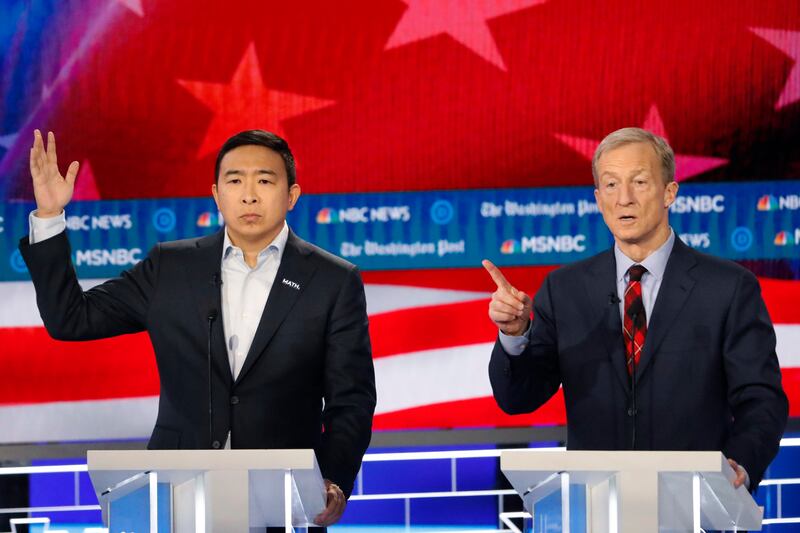The Democratic debate Wednesday night featured a first in the 2020 presidential primary election — a question about paid family leave.
What happened: Washington Post reporter Ashley Parked asked Andrew Yang what he would due to ease financial struggles for parents who have to pay thousands of dollars for child care.
Response: Yang said the U.S. is one of the few countries that doesn’t have paid leave, and that the country doesn’t offer time off, according to Vox.
- Yang leaned into his call for universal basic income — his main platform has been offering $1,000 per month to every American — to help fix the problem. He said he would give families up to $2,000 per month to spend on child care.
- “We should not be pushing everyone to leave the home and go to the work force,” Yang said. “Many parents see that trade-off and say if they leave the home and go to work, they’d be spending all that money on child care anyway. In many cases, it would be better if the parent stayed with the child.”
Yes, but: There could be a potential issue with offering the universal basic income plan. If you offer $2,000 for families (so $1,000 per parent), it wouldn’t be enough to cover the costs of child care, which could be close to $1,200 to $2,000 per month, according to Fast Company.
- And, according to Fast Company, it may also be problematic “because child care falls overwhelmingly on women and because women make on average around 20% to 30% less than men, the likelihood that if one parent would quit their job to stay at home with the kids, it would be a mother. Leaving the workforce for even one year impacts a person’s retirement assets and earning potential to the tune of hundreds of thousands of dollars over a their working life (the Center for American Progress has a calculator for exactly how many earnings a person will lose depending on their age and salary).”
Bigger picture: California Sen. Kamala Harris and Minnesota Sen. Amy Klobuchar also answered questions about child care, which could be a sign that the Democratic Party wants to bring more child care options to the United States, according to Inc.


